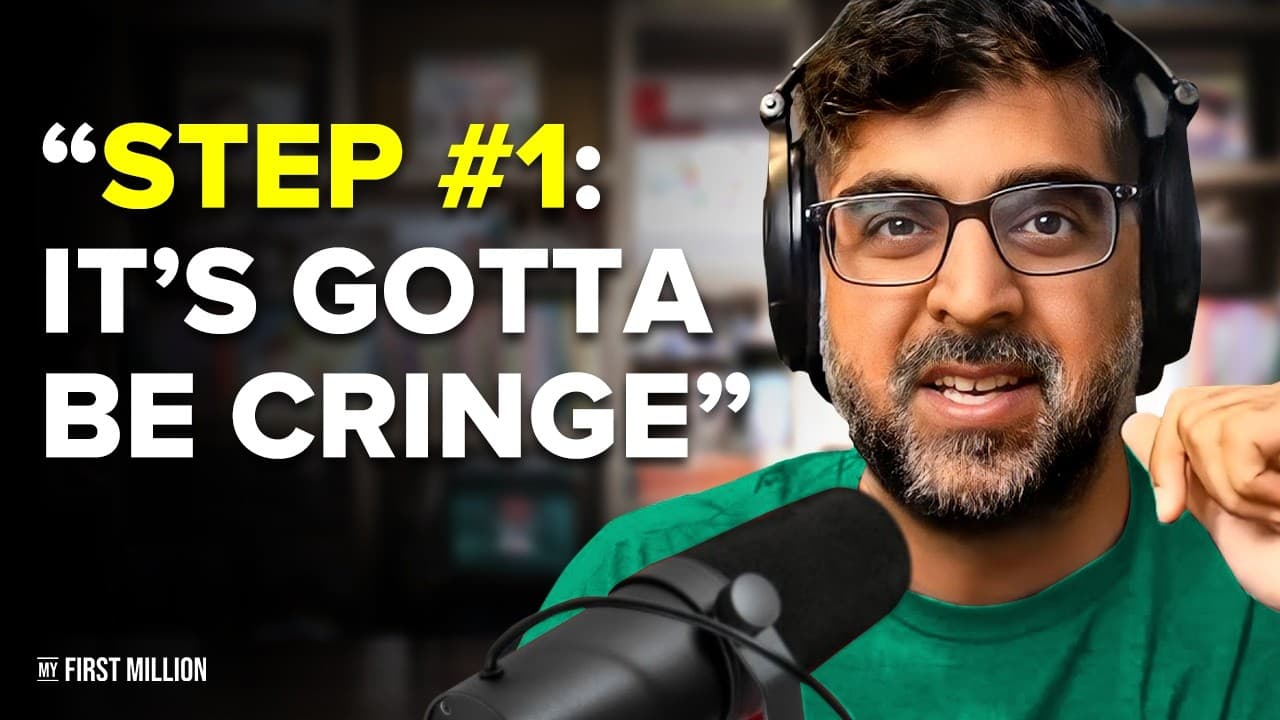How to hijack attention: Lessons from jingles, candy crush, and betting sites
17 Jul 2024 (over 1 year ago)

The history of jingles (Bring them back!) (0s)
- Jingles from the 90s were highly effective in creating brand recognition and recall, despite people not remembering personal phone numbers.
- Repetition is crucial for a jingle to stick in people's minds and can be achieved through increased ad frequency on social media and numerous channels.
- Current ad trends often involve simple visuals like arrows pointing at something or zooming in on faces, including creating ads in the iPhone notes app and taking screenshots to make it look like a shared note.
- Jingles are effective in capturing attention and should be considered for modern-day advertising, as they work because the brain responds well to music, especially when learning information.
- Effective jingles have a bit of cringiness, are incredibly repetitive, and include a clear call to action.
- Jingles, slogans, and catchy phrases can get stuck in our minds and become associated with positive feelings and memories, improving recall, memory, and brand association.
- Nostalgia can make things that were popular in the past seem cool again, and compressing a feeling and positioning into a short, easily transmissible package (like a jingle) can make it more memorable.
Prediction: Polymarket is going to be massive (11m37s)
- Polymarket is a prediction market platform where users can bet on the outcome of various events, including political races, sports matches, and scientific predictions.
- Users can win bets even if their prediction doesn't win as long as the odds go up.
- Polymarket operates using an automated market maker system, where the odds are determined by the betting volume.
- Prediction markets involve betting on the outcome of events, such as elections or celebrity actions, and rely on the collective wisdom of participants rather than expert analysis.
- Polymarket has gained popularity due to its user-friendly interface, media coverage, and potential as a decentralized media company providing valuable data for news organizations.
- Polymarket's growth is also driven by viral bets, such as the Titanic submersible incident.
- Despite initial skepticism, Polymarket has raised $75 million from notable investors, including Founders Fund and Joe Gebbia.
The wisdom on the crowd phenomenon (21m43s)
- Wisdom of the crowds, as seen in betting markets, provides more accurate information than news or polls.
- FTX's political bets, especially on the 2020 US election, attracted liquidity to the platform.
- Sam Bankman-Fried's practice of effective altruism, which involves accumulating capital for charitable giving, damaged the reputation of both effective altruism and cryptocurrency.
- DraftKings and FanDuel employ tactics similar to upselling software to entice users, potentially leading to addiction and financial issues.
- The speaker holds a negative view of online gambling.
How gaming apps hunt for whales (26m0s)
- Mobile gaming companies and gambling sites target high-spending users, known as "whales," to generate revenue.
- Robinhood's design encourages frequent trading, benefiting the company rather than its users.
- The speaker promotes Wander, a company offering luxury vacation homes, and mentions a giveaway for a free trip and a $300 travel credit.
Corporate Slang That Doesn't Exist But Should (31m0s)
- New corporate slang terms are suggested to create a sense of exclusivity and camaraderie within a group.
- Examples include "One man's Thanksgiving is another man's Thursday" for overexcitement, "Bubble wrap" for sensitive phrasing, "Aloh hamora" for shortened email introductions, "Sync storm" for quick Google Calendar meetings, "Sink Storm" for scheduling brief meetings without details, "Crash the Boards" for persistent follow-up, "Landslide" for securing votes before a meeting, "Boiling Eggs or Potatoes" for assessing resilience under pressure, and "Bingo" for calling out jargon or dishonesty in meetings.
- Other unique phrases mentioned include "Massaging elbows" for working hard on unimportant tasks, "Trying to teach a fish how to climb a tree" for mismatched strengths, "Pebbles" for downplaying problems, and "Parked" for describing a slow or unproductive day.
- The speaker encourages frequent use of these phrases to normalize them and admires the inventor of the shoehorn, setting a goal to invent one themselves.
- Inspired by a Twitter user named Die Workwear, the speaker discusses the challenges of dressing well for podcasting and proposes creating a Twitter account dedicated to fashion for podcasters, focusing on the best 12 garments for a professional on-camera appearance.